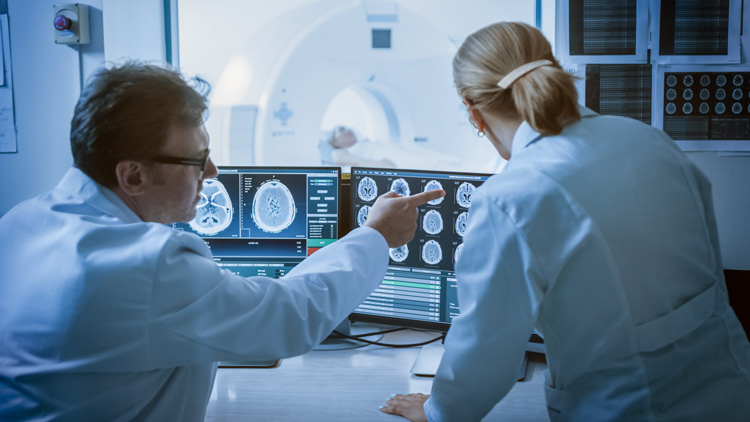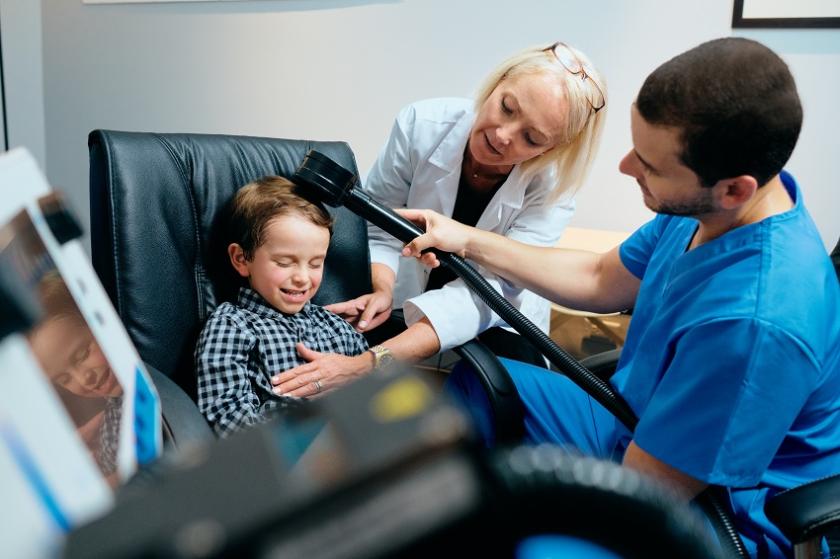
Neurologist
A neurologist is a medical doctor who specializes in diagnosing, treating, and managing disorders of the nervous system, including the brain, spinal cord, peripheral nerves, and muscles. Neurologists deal with a range of conditions such as epilepsy, stroke, multiple sclerosis, Parkinson's disease, and migraines. Neurology is a dynamic field that integrates advanced medical knowledge and techniques to address complex neurological conditions. Neurologists often work in hospitals, clinics, research institutions, and academic settings. A career as a neurologist is both challenging and rewarding, requiring a significant investment in education and training. Neurologists play a crucial role in diagnosing and treating complex neurological disorders, significantly impacting patients' lives. With increasing demand and numerous opportunities for specialization, neurology remains a dynamic and fulfilling medical career.
Role Desciption
- Diagnosing Neurological Disorders: Utilizing diagnostic tests such as MRI, CT scans, EEG, and lumbar punctures.
- Patient Management: Developing treatment plans, prescribing medications, and recommending lifestyle changes.
- Clinical Research: Conducting research to advance understanding of neurological diseases.
- Education and Training: Teaching medical students, residents, and fellows.
- Collaborative Care: Working with other healthcare professionals like neurosurgeons, psychiatrists, and physical therapists.
- Patient Support: Providing counseling and support to patients and their families.
Eligibility
Educational Route to Become a Neurologist in India
- 10+ 2 in science stream with PCB
- MBBS (Bachelor of Medicine, Bachelor of Surgery)
- MD (Doctor of Medicine) in General Medicine or Pediatrics
- Super specialization- DM (Doctorate of Medicine) in Neurology
Significant statistics
- Entrance through NEET-UG (for MBBS)
- Entrance through NEET-PG (for MD)
- Entrance through NEET-SS super-specialty (For DM)
Pros/Cons
Pros:
- Intellectual Challenge: Constantly evolving field with opportunities for learning.
- High Demand: Increasing prevalence of neurological disorders.
- Specialization Opportunities: Subspecialties such as pediatric neurology, neuro-oncology, and neuro-immunology.
- Patient Impact: Significant improvement in patients' quality of life.
Cons:
- Stressful Environment: High responsibility and emotional strain from dealing with severe conditions.
- Long Training Period: Extensive education and residency requirements.
- Work-Life Balance: Demanding hours and on-call duties.
- Complex Cases: Dealing with difficult-to-treat or incurable conditions.
Leading Professions
View All
Clinical Neurologist
Diagnosing and treating ...
16.0LPA

Academic Neurologist
Teaching medical student...
14.0LPA

Neurohospitalist
Managing neurological co...
20.0LPA

Neuroscientist
Conducting research to a...
10.0LPA

Pediatric Neurologist
Specializing in diagnosi...
15.0LPA

Neuropsychiatrist
Focusing on the intersec...
14.0LPA

Neuro-rehabilitation Specialist
Working with patients to...
9.0LPA

Neurology Consultant
Providing expert advice ...
18.0LPA
CAREER VIDEOS
Career Path
10+2 in Science with PCB
1 Steps
Skills
Recruitment Area
Universities and Colleges ,
Hospitals ,
Government hospitals ,
Private Practice and Consulting ,
Private Clinics .
Recruiters
AIIMS ,
Apollo ,
Fortis ,
Max hospitals ,
Medanta ,
Sir Ganga Ram Hospital ,
National Institute of Mental Health and Neurosciences (NIMHANS) ,
Post Graduate Institute of Medical Education and Research (PGIMER), Chandigarh ,
Tata Memorial Hospital ,
Christian Medical College (CMC), Vellore ,
Manipal Hospitals ,
Kokilaben Dhirubhai Ambani Hospital, Mumbai ,
Artemis Hospital, Gurgaon ,
Amrita Institute of Medical Sciences (AIMS), Kochi ,
Yashoda Hospitals, Hyderabad .
Explore Colleges
Exams & Tests
Interested? Take the next step for this career
10+2 in Science with PCB
- 1 Steps
Skills Needed
Exams and Tests
Recruitment Area
Universities and Colleges ,
Hospitals ,
Government hospitals ,
Private Practice and Consulting ,
Private Clinics .
Recruiters
AIIMS ,
Apollo ,
Fortis ,
Max hospitals ,
Medanta ,
Sir Ganga Ram Hospital ,
National Institute of Mental Health and Neurosciences (NIMHANS) ,
Post Graduate Institute of Medical Education and Research (PGIMER), Chandigarh ,
Tata Memorial Hospital ,
Christian Medical College (CMC), Vellore ,
Manipal Hospitals ,
Kokilaben Dhirubhai Ambani Hospital, Mumbai ,
Artemis Hospital, Gurgaon ,
Amrita Institute of Medical Sciences (AIMS), Kochi ,
Yashoda Hospitals, Hyderabad .



















